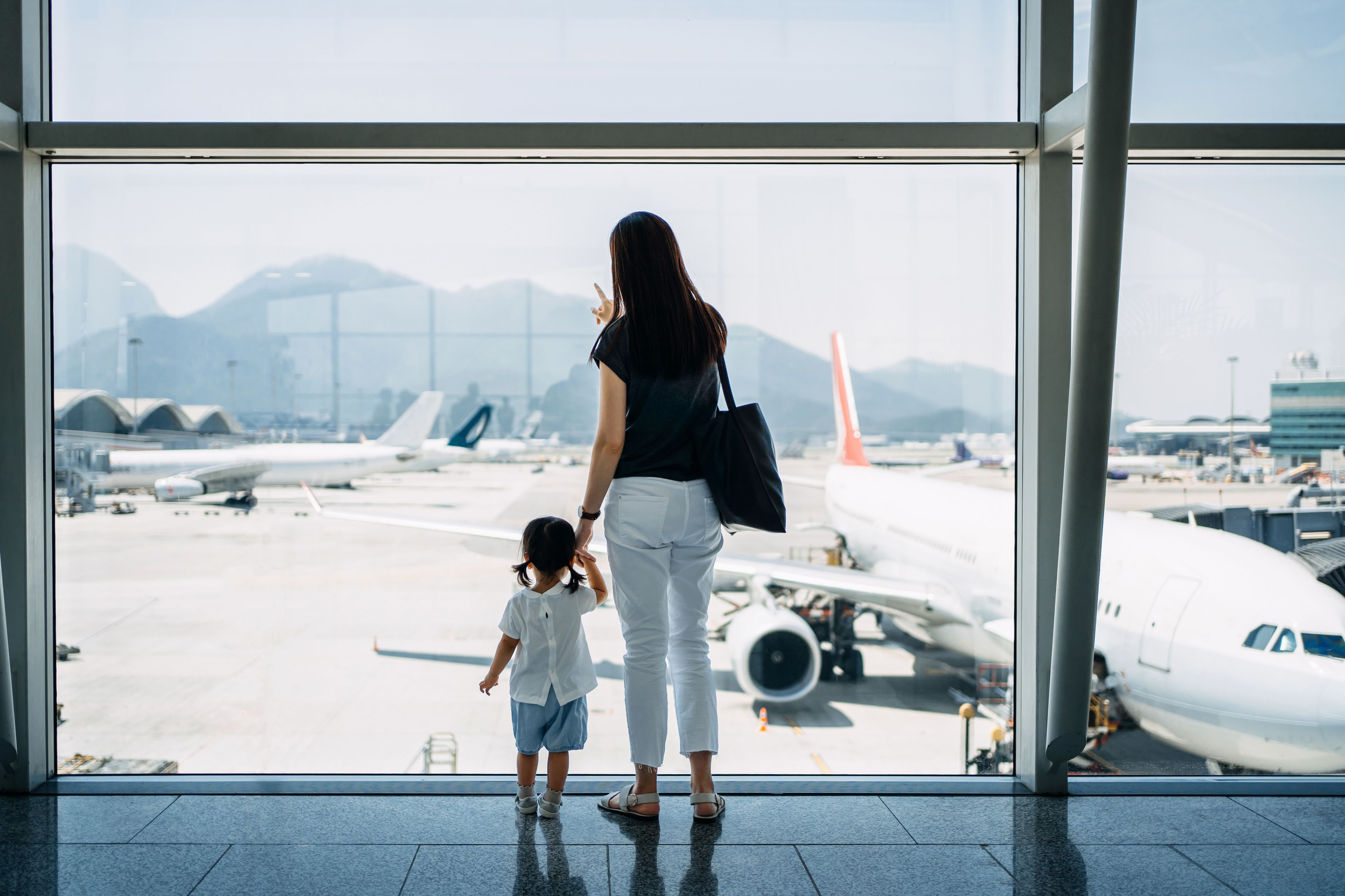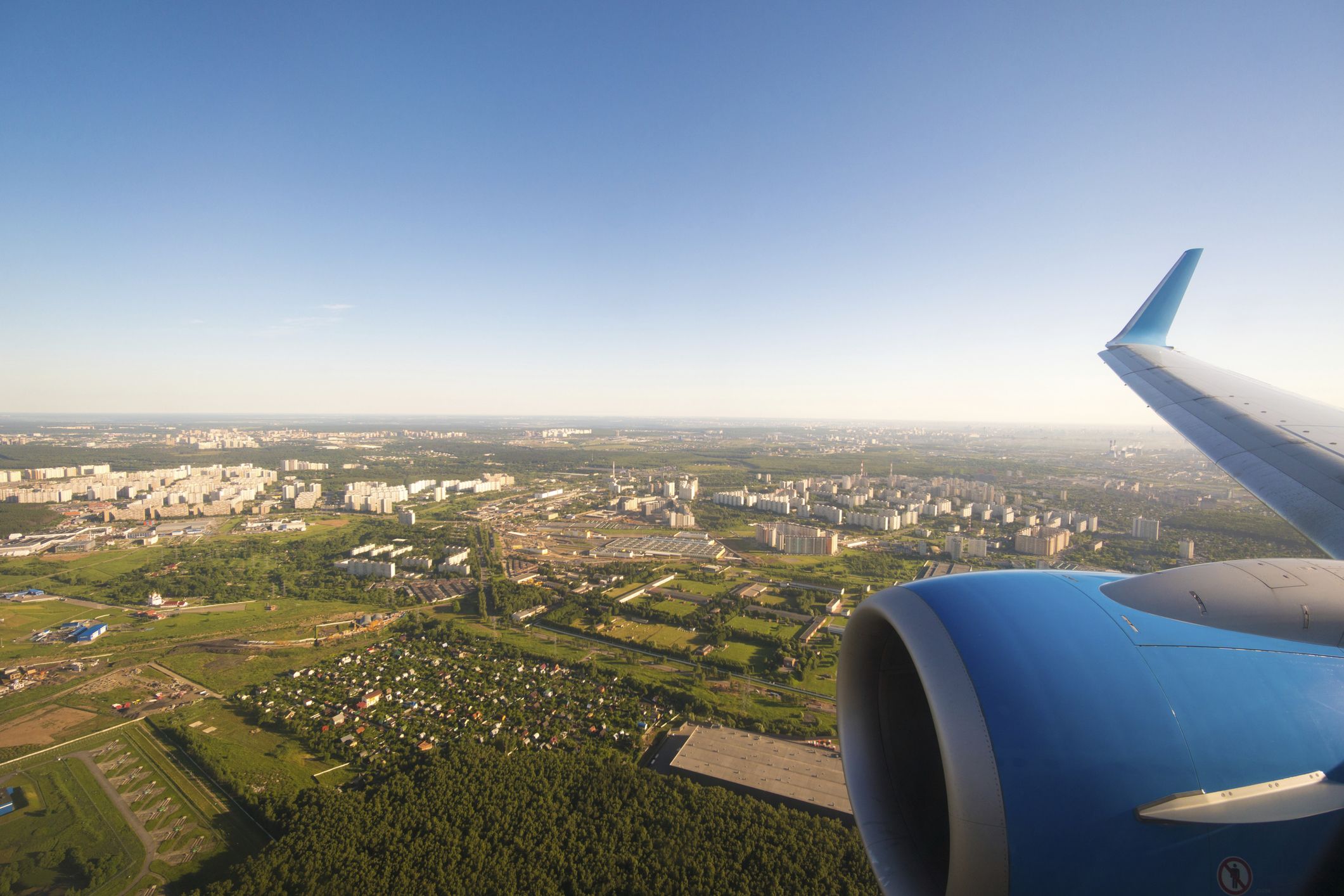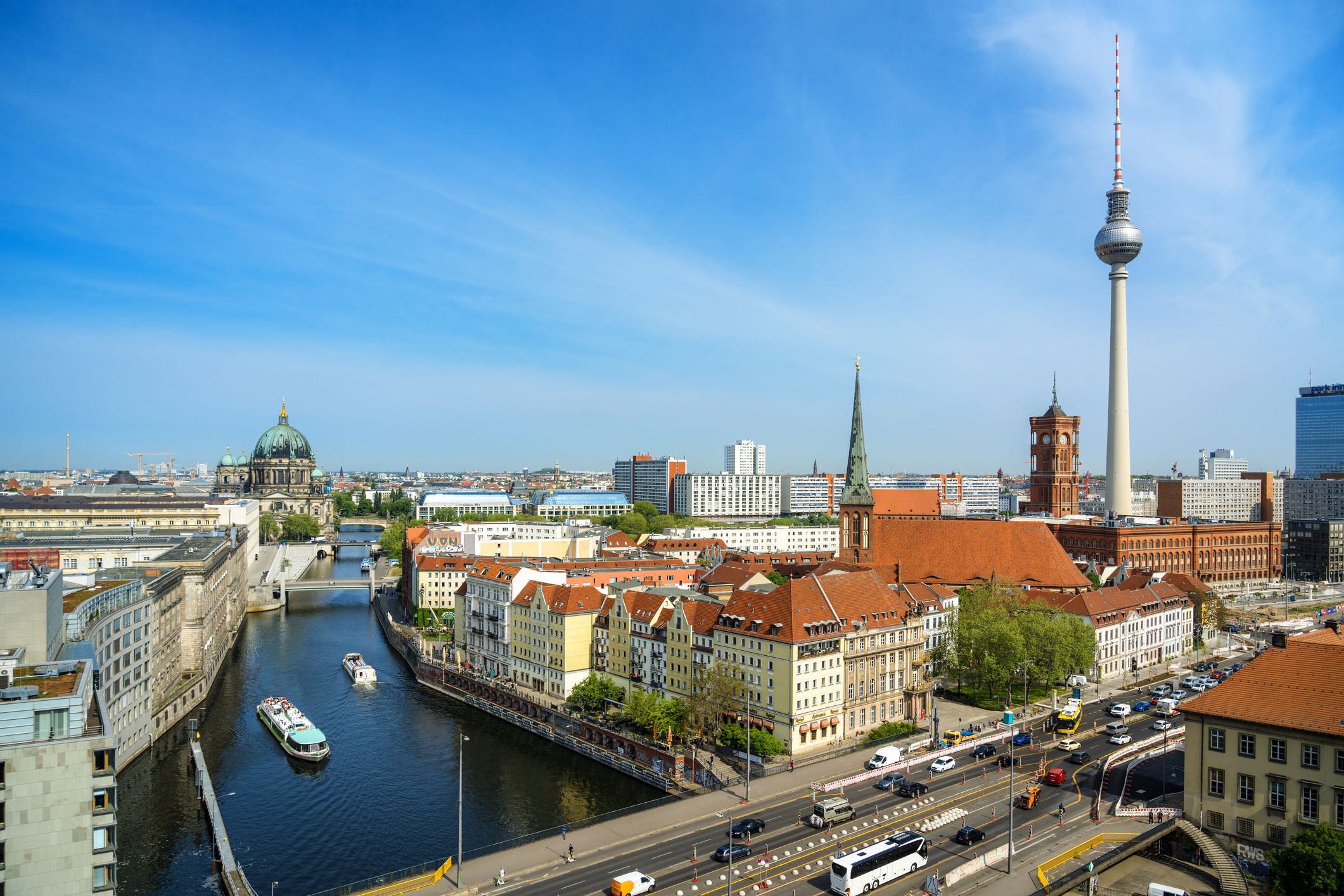German Aviation Policy
For political representatives and other aviation stakeholders in Germany

Mobility and Economic Growth Go Hand in Hand
Looking back in history, cities and regions have always developed particularly well when they were transportation hubs. Germany is located in the center of Europe. It is the third-largest economy in the world and the largest in Europe – actually ideal conditions to also be the most important air transport market on the continent.
Germany has lost its leadership
In 2013, Germany ranked first among all European countries in terms of air connectivity – that is, passenger capacity weighted by the economic importance of all served destinations. We have since lost this top position to the United Kingdom and Spain.
Value creation and growth should take place here and not abroad
It is important to stop and reverse the negative trend. The importance of air transport for people and for Germany as a business location and job engine is immense. Air transport connects Germany with the world. With travel, we not only associate relaxation but also build important bridges to other countries and cultures – this applies equally to the private and business sectors. And for the German export economy, the rapid transport of important production goods is an indispensable location factor.
In Germany, around 400,000 people work directly in the aviation sector, which corresponds to an economic output of more than €35 billion or 0.8% of the total gross domestic product (GDP). Additional value creation arises from upstream and downstream supply chains, the consumer spending of millions of passengers and employees, as well as further economic impulses – for example, through tourism, the hotel industry, and the hospitality sector. Overall, these factors generate a contribution of €136 billion to GDP and secure 1.5 million jobs.
Transition to Sustainable Air Transport
The aviation sector is aware of its responsibility for the climate. In 2021, airlines committed to achieving the goal of net-zero CO2 emissions by 2050. Our strategy to achieve this relies on various pillars, but the most important is the use of Sustainable Aviation Fuels (SAF).
EU-wide, a 2% SAF blending mandate has been mandatory since January 1, 2025 through the European Regulation on ReFuelEU. This share is to be gradually increased every five years, reaching 6% in 2030. However, there are alarming signs that SAF production is not increasing at the required rate. For 2024, a global production of 1.5 million tons of SAF was forecast, but only 1 million tons was produced.
European airlines are concerned that the EU-wide mandate cannot be met due to the scarce availability of SAF in the market, which will result in penalties and high costs, potentially leading to negative impacts on the affordability of airfares.
To achieve the net-zero CO2 emissions target by 2050 and ensure that the EU regulation leads to actual emission reductions, there is an urgent need for German policymakers, in consultation with the aviation industry, to develop and consistently implement permanent measures to support SAF production and ramp-up.
After the drastic cut in budget funds from the Climate and Transformation Fund by the Federal Constitutional Court’s decision in November 2023, many potential SAF production projects had to be frozen or completely abandoned last year. Moreover, the coalition agreement of the 'Traffic Light' government promised to use the revenues from the aviation tax for the decarbonization of the sector. This political promise was broken! The tax was massively increased and still goes 100% into the public budget.
Aviation is a reliable partner in reducing CO2 emissions and supports Germany in many climate protection projects – but we want fair treatment and, in return, demand that we can trust the promises of politicians.
It is almost absurd that there is still a special national blending mandate for electricity-based SAF (e-kerosene / PtL) in Germany, which will be valid from January 1, 2026. This fuel cannot yet be produced on an industrial scale. The unattainable legal PtL quota should therefore have long been abolished – and in its design, it also contradicts applicable EU law (ReFuelEU Regulation). There is also an urgent need for action here: Airlines need clear and non-contradictory legal frameworks and planning security.
Regarding aircraft noise, the airline industry will continue to actively participate in the aircraft noise commissions and constructively contribute our expertise to jointly develop further noise-optimized flight routes with all parties involved (in line with the Balanced Approach developed by ICAO). In the optimization of flight routes for noise reduction as well as in the research of the potential climate effects of non-CO2 emissions from aviation, German airlines are pioneering and are world leaders.


Air travel should be affordable for everyone
In the past 50 years, the cost of airline tickets has dropped by 70% worldwide. Travelers, families and businesses prize affordable air travel, and this should be a priority for industry and policymakers But in Germany, state location costs alone have doubled since 2020.
Sad record: Germany is the leader in state location costs
In May 2024, the aviation tax was increased by 25%, on January 1, 2025, aviation security fees increased by up to 50%, and additional costs for the statutory SAF blending obligation were also added.
The overall excessively high fee burden in Germany is the main reason why the recovery of air traffic lags massively behind other countries in Europe.
Competitiveness in Germany Weakened
The flight offerings in Germany are suffering under significant cost pressure. Comparing 2024 with the pre-Corona year 2019, domestic flight connections have plummeted by an astonishing 50%! Outside the major hubs of Frankfurt and Munich, the situation is even more dire, with declines of up to 75%. Many airlines are withdrawing their aircraft from Germany and instead operating from more economically favorable locations. This is detrimental to mobility in our country and is already leading to job losses.
Regarding the topic of a kerosene tax for aviation, the following important facts are often overlooked:
- Unlike all other modes of transport, aviation pays for the use of its infrastructure entirely by itself. In contrast, road and rail networks are financed from public funds.
- Aviation already bears a very high tax burden that other modes of transport do not have. In 2024 alone, the aviation tax amounted to more than €2 billion Euro.
- The introduction of a kerosene tax at the German or European level leads to a competitive disadvantage for domestic airlines, as other countries do not tax kerosene. This is damaging for our own economy.
Aviation needs fewer, not more, government burdens to avoid further widening the gap with the competition. Specifically, this means:
- Abolition of the aviation tax. More taxes mean less value creation in Germany and the endangerment of many thousands of jobs.
- Reduction of security costs and other state location costs to a competitive level
Consumer Rights
IATA is committed to providing a more seamless, inclusive, and secure flight experience for all passengers – including those with mobility impairments or special service requirements. We work closely with authorities and interest groups in this area and have recently launched the “One Click Away” initiative, which provides air travelers with all relevant information on mobility impairments with just one click on our airlines’ homepages – gradually in a uniform and standardized form across all airlines.
Well-designed consumer protection laws would safeguard consumer rights while promoting innovation, allowing airlines to respond to unforeseen operational disruptions through individual customer service offerings.
Regulation Reform
The current European Passenger Rights Regulation (EC) 261/2004 should be reformed after more than 20 years, as its original goal – reducing delays – has not been achieved through this regulation. Instead, the regulation is a hindrance to connectivity and competitiveness. Delays could be effectively avoided through better airspace management. Germany has consistently been the second-largest cause of delays in the European network over the past three years. This is a disaster for passengers and airlines and also harms the environment.
There are a number of very unfavorable judgements in the court system, and a large volume of claims in the courts that are related to EU261. This burden on the system is being exacerbated by the actions of claim farms which are completely unregulated. Unlike law firms which represent passengers and handle funds on their behalf, these entities are not pro-consumer and just suck money out of the system.

The International Air Transport Association (IATA) represents over 340 airlines and 80% of global air traffic. It provides support regarding travel regulations and policies and offers regular updates on aviation policy, statistics, and global trends.
For further information, please contact Mathias Jakobi, Area Manager Central Europe, or Ilona Germes, Manager, Regional Affairs, Central Europe








